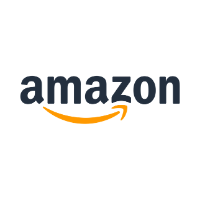
Amazon
View Brand PublisherAmazon India bolsters DE&I in the logistics sector with a new grant
Women entrepreneurs and experts discuss Amazon’s new logistics grant, the need for women, LGBTQIA and differently-abled entrepreneurs, and the transformations occurring in the sector.
For decades, whether explicitly acknowledged or not, the logistics sector has remained a space dominated by men. However, if we take a look at the landscape of logistics, there are changes occurring on every level - be it on an entrepreneurial, managerial, operational or worker level.
Small but certain steps are being taken, but the logistics sector still has miles to go to achieve true diversity, equity and inclusion (DE&I). In a bid to encourage people from diverse backgrounds, communities, genders and other marginalised groups to join the industry, Amazon India recently announced a new grant. To discuss this grant and the state of DE&I in logistics, and YourStory hosted a virtual roundtable titled Driving Progress - Diversity, Equity and Inclusion in the Logistics sector featuring Jamuna Rani, Founder, Sarini Associates; Rachna Kher, Co-founder and Director, Nirbhaya Cabs; and Karina Bhasin, Director, Even Cargo. Also, on the panel was Dr Karuna Shankar Pande, Director of Last Mile Operations at Amazon India. The discussion was moderated by Priya Sheth, Senior Anchor at YourStory Media.
Reaching out to the underrepresented with grants
According to reports, women in logistics make up about 15 percent of the workforce. However, diversity isn’t just limited to women. A truly inclusive workforce makes room for a variety of different marginalised groups, including members of the LGBTQIA community and differently-abled workers. A 2022 Supply Chain DEI (Diversity Equity and Inclusion) Survey from Gartner and ASCM (Association for Supply Chain Management) surveyed 384 participants in large supply chain organisations in the US, Europe and Canada on broad DE&I dimensions - gender, LGBTQIA, ethnicity, racial minorities, physical abilities and more and discovered that 40 percent of participants are working on specific supply chain DEI initiatives.
According to Dr Karuna, Amazon has committed USD 7 million worldwide through various grants and programmes to encourage the entrepreneurial spirit in underrepresented communities. He also spoke of the three women entrepreneurs and Amazon’s Delivery Service Partners present at the panel and shared that they have five exclusive delivery stations that are managed and operated by women. He also discussed the grant and how it could open doors for women, LGBTQIA and differently-abled entrepreneurs in logistics.
To begin with, the grant offers financial support, helping young entrepreneurs cover some of the costs associated with setting up a business. Additionally, entrepreneurs will also be trained in different aspects of working in logistics and in the technology used by the sector. With the DSP program, Amazon assists interested entrepreneurs in starting their own delivery business by providing them with access to Amazon's sophisticated delivery technology, hands-on training, and exclusively negotiated deals on services such as payroll management, insurance, and recruitment technology among others.
“Amazon’s mission is to be Earth's most customer-centric company. And for sure, DEI - diversity, equity and inclusion - is a key aspect in it,” said Dr Karuna.
Women in the workforce and the warehouses
A 2020 Mckinsey report titled ‘Diversity Wins: How Inclusion Matters' stated that the greater the representation in business, the higher the likelihood of outperformance. According to the report, companies with more than 30 percent women executives were more likely to outperform companies where the percentage ranged from 10 to 30 percent. According to industry estimates, only 20 percent of the Indian logistics sector consists of women. Furthermore, in 2018 a report by the Ministry of Road Transport and Highways revealed that only 1 percent of commercial driving licences are owned by women.
A large part of the problem is the infrastructure in logistics. Warehouses and supply chain locations can be difficult spaces to work in for non-male genders due to safety reasons, access to sanitation and other resources. However, female entrepreneurs are transforming the workspaces in logistics, supply chain, and last mile delivery.
According to Karina, when she started Even Cargo with her partner, they identified several measures to ensure a safe workplace for women by creating awareness about health and safety, and building various feedback mechanisms at the workplace. Additionally, they also set up separate bathrooms for women, sanitary napkin vending machines, seating areas and more. The other focus area was on language. They ensured that all the communication, marketing and training materials were inclusive and gender neutral.
Karina explained that many of the changes were implemented for women, as well as other underrepresented communities such as differently-abled workers.
Technology and automation usher in diversity and inclusion
Disruptive technology and automation are reshaping the logistics sector in more ways than one. While technology has helped logistics companies plan, forecast, replenish their inventories and cater to a diverse customer base, it also provides the kind of security that women need in the sector. According to Karina, they worked on solutions to ensure that both their shipments and their employees could be safely tracked. They also integrated an emergency SOS app for women riders and worked with the company to make a change in the app interface, protecting any phone numbers or personal details of the riders from being disclosed.
During the panel discussion, each of the women spoke heart-warmingly of their experiences as entrepreneurs in the logistics industry and their association with Amazon. For Jamuna, who started Sarina Associates with just three resources in 2016, this has been an opportunity to offer good, powerful work to the women in her community. Rachna spoke about her experience, stating that she has grown personally and professionally. Speaking about the pandemic, she stated, “Amazon has given us rock solid support at every juncture – from infrastructure, to technology, to medical benefits for workers infected with COVID-19. I don't know any other company who will help a delivery associate like this.”







